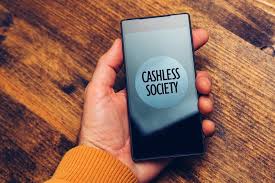Sweden Is Going Cashless So Quickly That Its Central Bank Is Speeding Up Plans for a National Digital Currency

For the last couple of years, Sweden’s central bank, the Riksbank, has been mulling over the idea of issuing a digital currency, in order to adapt to the needs of the increasingly cashless society.
Last year, the Riksbank—the world’s oldest central bank—issued a report describing what the “e-krona” might look like, and on Friday it called for the design of the electronic currency to move forward, so it can be tested.
The pilot would involve the creation of a “value-based e-krona” that could be stored on a card or in a mobile phone app, and that would allow for traceable transactions.
The Riksbank also said it was time to start drawing up proposals for legislative changes that could give the e-krona legal standing. The central bank fell short of saying the electronic currency definitely had to be introduced, but it clearly wants everything to be lined up for decision time.
Why the rush? The thing is, Sweden is going cashless really quickly—arguably too quickly. Some banks no longer handle cash, and many shops and restaurants don’t accept it anymore. A Riksbank survey this year showed that only 13% of Swedes paid for their most recent purchase in cash, down from 39% in 2010.
This rapid shift makes life hard for citizens, such as the elderly or disabled, who won’t or can’t adopt the mobile or digital payments that are currently on offer. It also creates a risk that Swedes will no longer have access to a form of payment that is guaranteed by the state and not entirely in the hands of the private sector.
“If the marginalisation of cash continues a digital krona, an e‐krona, could ensure that the general public still has access to a state-guaranteed means of payment,” the Riksbank said. “Alternatively, not to act in the face of current developments and completely leave the payment market to private agents, will ultimately leave the general public entirely dependent on private payment solutions, which may make it more difficult for the Riksbank to promote a safe and efficient payment system.”
The central bank’s worry is that, without a state-backed means of payment for the digital era, payment systems in the country may become unstable and the Swedish monetary system untrustworthy.
The adoption of an e-krona—at first as a complement to physical cash—could ensure the public still has access to central bank money, and it could also avoid a situation where the private sector has to “take all the responsibility for ensuring that payments function in crisis situations,” the Swedish central bank said.
“There are currently groups in society that are encountering problems as cash use declines because they find it difficult to use digital payment solutions for one reason or another. Such groups include older people, people with disabilities or those who, for different reasons, do not have access to payment instruments other than cash. Since it cannot be expected that the private market fully cater for these groups, the state can choose to take greater responsibility for them,” it added.
In terms of a timeline, the new report suggested the initiation of the pilot program next year, with implementation made viable by 2021—should the country decide to make that leap.


